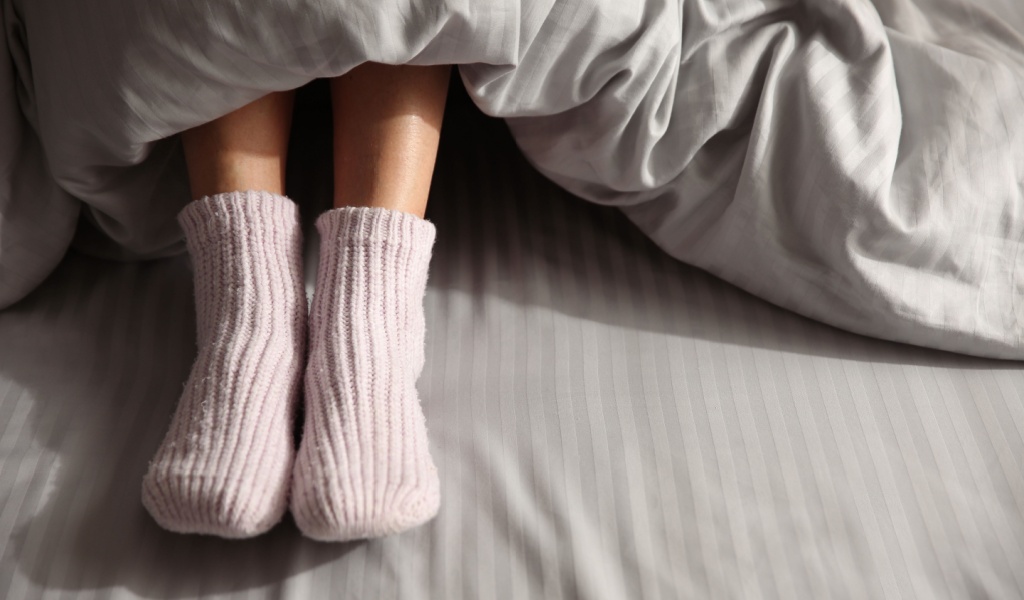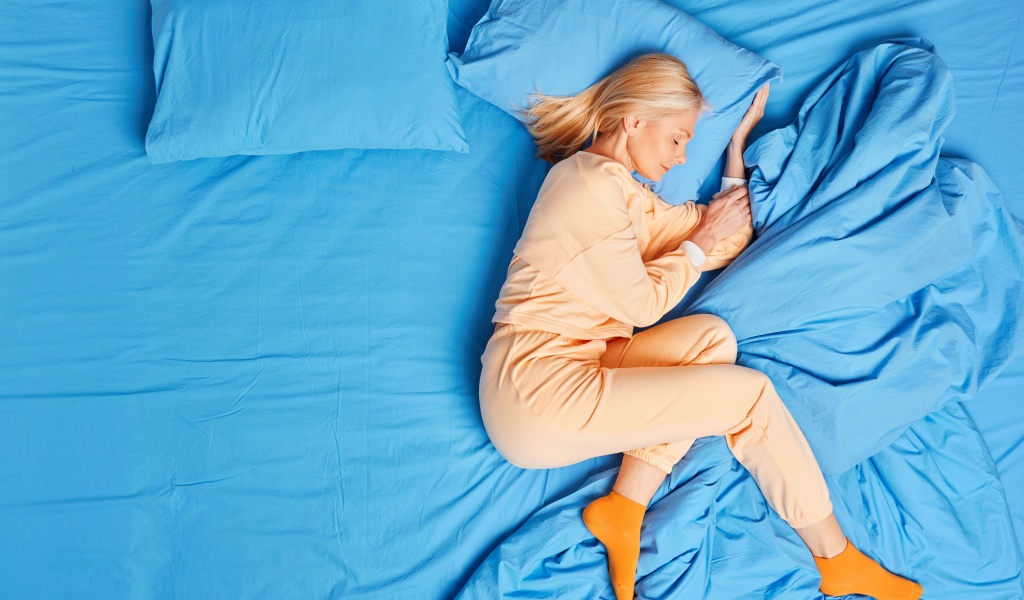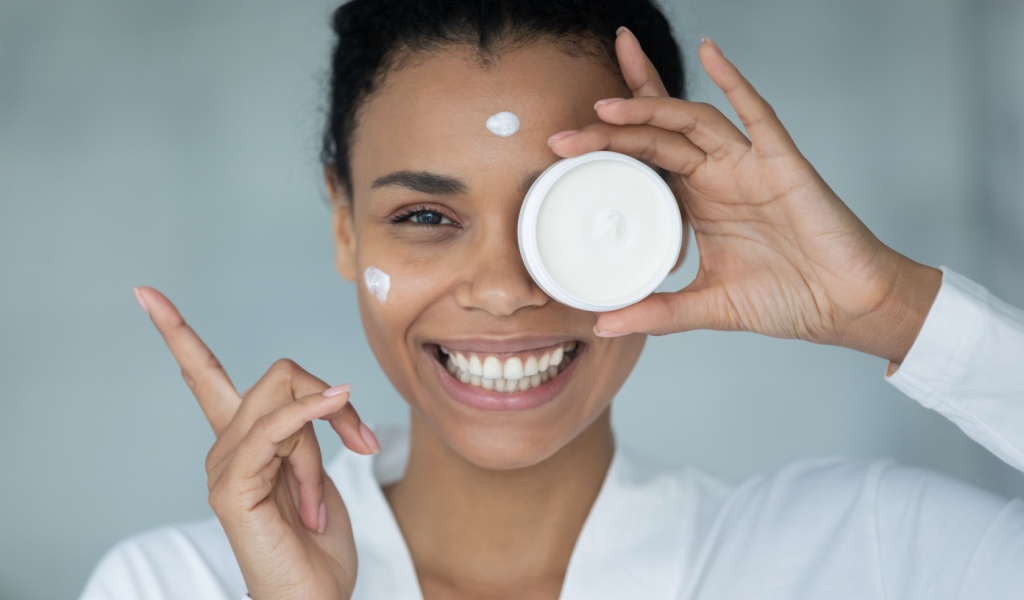With the high stress levels people face today, a good night’s sleep is a luxury only some get to enjoy. Struggling to fall asleep, jolting awake in the middle of the night, and being unable to sleep restfully can affect the entire day and mood. Surprisingly, a simple trick may be the answer to your woes. Interestingly, wearing socks to bed can actually help you get a good night’s sleep.
At first glance, feet and sleep might seem to be unrelated. Still, studies have discovered that sleeping with socks on enhances sleep quality by prolonging sleep time, shortening sleep onset latency, and reducing awakenings. Let’s explore this topic a bit further.

The Relationship Between Body Temperature And Sleep
Our body temperature constantly fluctuates throughout the day and night and is regulated by thermoregulation. Our body’s core temperature is different from the skin’s temperature. While skin temperature is the temperature you feel at the surface of your body, core temperature is the heat within the body’s vital organs.
Your body temperature can significantly affect your sleep. Sleep is a dynamic process tied to the body’s internal rhythms, including temperature. When we sleep, the core body temperature decreases, causing the transition between wakefulness and slumber. Your body temperature varies throughout different sleep cycles. For example, when entering the non-rapid eye movement sleep phase, the temperature drops and rises during rapid eye movement sleep, which is linked with vivid dreaming.
Therefore, managing your body temperature before sleeping can help you fall asleep easier. Of course, it’s a dance between environment and biology, but something as simple as a pair of socks on your feet can have a profound impact.
How Sleeping With Socks Can Help
Research shows that wearing socks to bed can help people fall asleep faster and wake up fewer times during the night. Men wearing socks fell asleep seven minutes quicker and slept for thirty minutes longer. While more research is being conducted on this topic, it has been known for a long time that warming the feet during bedtime can help sleep better.
A high volume of blood vessels in the feet plays a crucial role in heat regulation. When you warm your feet before bedtime, it’s a signal to your brain that it’s time to sleep. Warm feet, whether through a warm foot bath or by putting on a pair of socks, can cause the blood vessels to dilate and help communicate that it’s bedtime.
Socks are more than just a fabric foot covering; they also serve as thermal conductors and help balance the body’s temperature for sleep. They retain heat and help keep your feet at a consistent temperature, which would otherwise fluctuate throughout the night and hamper your sleep, helping to maintain a state of deep sleep.
People who struggle to fall asleep at night can benefit from the extra layer of warmth provided by socks, allowing them to have a restful sleep. Remember to choose socks made from breathable, natural materials like cotton, cashmere, or merino wool. Such fabrics can regulate temperature and keep the feet warm without overheating. Don’t wear socks made from materials that trap moisture because damp feet can disrupt sleep.
Another good tip is to apply a little lotion to your feet before you slip on your pair of socks. This helps the moisturizer work its skincare magic all through the night and lock that moisture in to keep your feet from getting too dry, all while you’re blissfully enjoying a good sleep. It’s a win-win!

When Sleeping With Socks on Won’t Work
Sleeping with your socks on isn’t a solution that suits everyone. Sometimes, doing so may make you more uncomfortable. For example, if you’re suffering from a fever, adding that extra layer of socks can cause the body to overheat, aggravating your condition. Likewise, wearing socks can make you feel too warm to fall asleep if you live in a tropical climate. Moreover, the wrong type of socks can also hinder your sleep. If they’re too tight, they can restrict circulation, and socks made of synthetic materials can trap moisture and lead to foot issues such as athlete’s foot.
Bottom Line
If you think sleeping in socks will magically cure your restless nights, you should understand that it may or may not. Of course, it’s worth a shot to get a better night’s sleep, but don’t misconstrue it as a cure for sleep problems like insomnia. If you do suffer from sleeping disorders, it’s best to talk to a medical professional. The same applies to people with circulation problems – they should only wear socks while sleeping after getting the green light from their doctor first.
Nevertheless, sleep is the only way we can give our body and mind a rest and break so they can rejuvenate for a new day. So, just like you would dim your lights during bedtime, unplug your devices, and avoid too much caffeine, you can try putting on a pair of socks to step up your sleep routine. You might be surprised to note how well-rested you wake up the next day!



